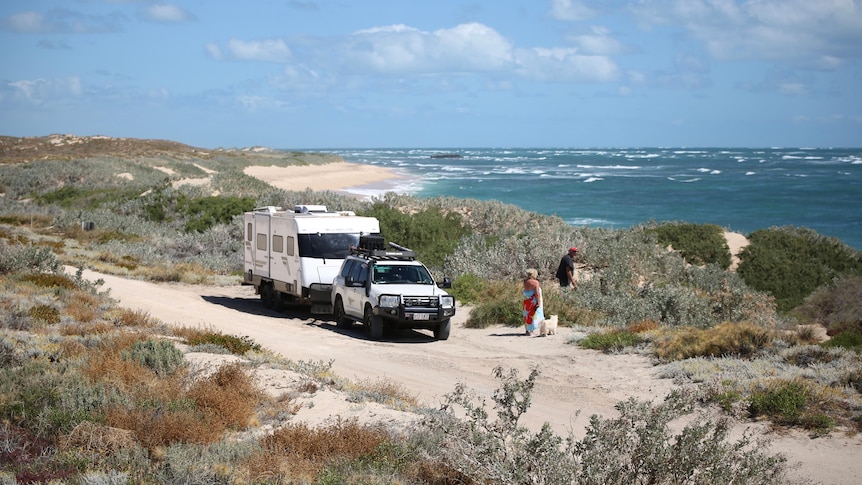Wake up, eat, go to work, come home, eat, sleep, repeat.
Living the dream, huh?
“Personally, I believe I’m not meant to work. I’m meant to do this all day,” says an audio track on TikTok that went viral for its candid message: working a 9-to-5 job is no longer the ideal lifestyle for many.
loading
One video that uses this audio shows a woman sitting at a cafe, enjoying a coffee and croissant. Ella’s phone camera pans around, revealing a dozen others leisurely doing the same.
It has over three million views.
The video-based app has become a hub for Gen Zs and Millennials to create apathetic and pessimistic commentary about their disillusionment towards work.
What’s fueling this? Toxic workplace culture, minimal flexibility, no work life balance and of course, the pandemic.
Deloitte’s Global 2022 Gen Z & Millennial Survey revealed four in 10 Gen Zs and nearly a quarter of Millennials would like to leave their jobs in two years.
Roughly a third would do so without another job lined upthe report found.
However, if you love what you do, is it true that you’ll never work a day in your life?
Engineer-turned-career-development practitioner Naishadh Gadani said the dream job is “an overly simplistic and misused term”.
“Rather than thinking of it as a dream job, we should be questioning whether it’s a fulfilling job,” Mr Gadani told ABC News.
“Questions like: What fulfills me? What brings me happiness? What kind of workplace or organization do I like? – [these] can help us.”
Juliette had ‘golden ticket’ job but quit and now works casually in hospitality
Juliette, 22, from Victoria, landed her first white-collar job from her sister’s roommate at the time, who worked in the public service.
After hearing that she was looking for trainees who required no qualifications, Juliette applied and was offered the job.
“It was a golden ticket because I was 20, had no qualifications past a mediocre ATAR, and was now working full-time and getting paid a decent wage.
“I received a lot of praise from friends and family. It was a job that my family could gloat about,” she said.
After nine months into the job, Juliette quit. She said she felt like a failure.
“I had spent months toying with the idea of whether money or my mental health was more important,” she said.
Four months after she quit, Juliette traded full-time work for a casual job in hospitality and she has never been happier.
“My job isn’t who I am. I don’t base my worth on my productivity within capitalism.”
Despite her reduced working hours, coupled with a rising cost of living, Juliette remains “optimistic” about the future.
“As bad as things are economically, it’s just a cycle. There are bigger problems than my wallet.”
Alex’s dream was to play in a band. I realized it was not as glamorous as it sounded
Alex, 32, was in his first year of university when a friend asked what he wanted to do for a career.
“She said to ignore the money and say the first thing that came to mind. I blurted out: ‘I want to play in a band.’
“That’s the moment I decided playing in a band was my ‘dream job’,” he said.
However, as Alex became more involved in Brisbane’s music scene, he saw how the life of a band member wasn’t as glamorous as their fans might suspect.
“Playing shows to hundreds of fans sounds incredible, but this is only a small part of a touring musician’s life,” he said.
Over the years, Alex decided he wouldn’t let a job consume his identity, so he allowed himself to simply “have a job.”
His current “day job” is working in the aerospace sector. But he hasn’t given up on ditching the 9-to-5 routine.
“I’ve recently gotten into making my own YouTube videos as well as editing them for clients. So, that’s another possibility,” he explained.
Alex said his ideal situation would be to play local shows in small venues, as opposed to touring nationally or internationally.
“I don’t see that as a failure. So long as I’m enjoying playing music, that’s a success in my mind,” he said.
Owning a home is ‘unachievable’ for Ishara, but she believes this is no longer the dream for young people
During primary school, Ishara Sahama, 23, dreamed of becoming a vet.
It wasn’t until her final years of high school — when she gravitated towards the humanities and social sciences field.
After graduating university with a major in geography in 2019, Ms Sahama spent a few years volunteering and gaining work experience.
She now works part-time in the social enterprise and entrepreneurship space.
“Ever since I started working, I’ve seen people who are either in their mid-20s-30s, or in their 40-50s, resign from the public sector and move to private, or vice-versa,” Ms Sahama said.
“Pushing young people to pick a dream job — or will it into existence — can be detrimental to their personal growth.”
“The past two years have changed the way work is conducted. A 9-to-5 job, five days a week can be condensed to four days,” she said.
“And, yet, people who do or don’t have this work structure may still struggle to keep up with Australia’s rising cost of living.”
Ms Sahama saves on certain costs by living with her family, paying for petrol and groceries, costs that have only increased over time.
While these costs are manageable for her, Ishara feels indifferent when it comes to buying a home.
“The idea of owning, or leasing, a property in the future is now unachievable for me, considering current economic circumstances,” she said.
“The ‘Australian Dream’ is a luxury and a privilege. It doesn’t reflect everyday realities of young people who must change and adapt to the workforce in a post-COVID world.”
.

